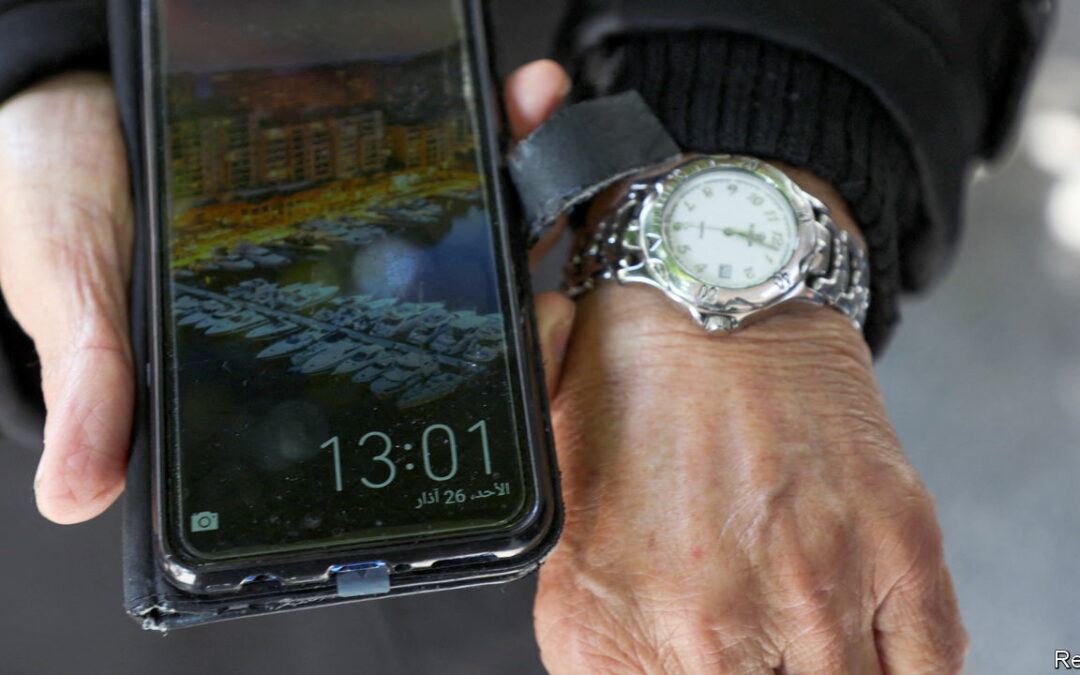WHAT’S THE TIME in Lebanon? Until March 29th the answer will largely depend on your religion. On March 26th the country would normally have set its clocks forward to daylight saving time (DST), as is the custom on the final Sunday of March. But at the last minute the government delayed the change. State institutions stayed on winter time, while church organisations and some schools and news outlets jumped an hour ahead. The result was a calendar nightmare. On March 27th Najib Mikati, the caretaker prime minister, said that, following a cabinet vote, clocks would move forward after all, albeit three days late. Why did Lebanon end up so confused about the time of day?
On March 23d Mr Mikati announced that the switch to DST would be moved from March 26th to April 21st. He gave no reason for the unilateral decision at the time, but on Monday admitted that it was intended to benefit the country’s Muslim majority, who are observing Ramadan. Delaying the switch to DST meant that sunset would fall at around 6pm rather than 7pm, allowing them to break their daily fast earlier by the clock. He claimed that the relief would have come “without harming any other Lebanese component”.
The decision was emblematic of Lebanon’s sectarian politics. Its power-sharing rules, dating back to the end of French colonial administration in 1943, divide government posts and public-sector jobs between Muslims and Christians, and originally skewed slightly in favour of Christians. Since Lebanon’s civil war, which ended in 1990, such jobs have been divided equally (although Muslims now account for around two-thirds of the population).
But networks of patronage and clientelism have grown around the two groups. The result is narrow-minded policy. The caretaker education minister, Abbas Halabi, who is known for promoting Muslim-Christian dialogue, said the prime minister had “inflamed sectarian discourse”. He said schools would not abide by the (non) change until the law was approved by a cabinet decision. A spokesman for the largest Christian group, the Maronite church, said there had been no consultation on the “surprising” move. Pierre Daher, boss of LBCI, a big broadcaster which also ignored the decree, complained that 48 hours was not enough time to overhaul operations.
Meanwhile, state-linked institutions toed the line. The two largest telecom companies reminded users to change clock settings manually on their digital devices to avoid the default switch. Middle East Airlines, Lebanon’s flagship carrier, advanced all departure times for flights leaving Beirut to keep with international schedules. People struggled with scrambled online calendars, as some appointments were brought forward by an hour, while others stayed unchanged. Double bookings abounded.
Little wonder, then, that Mr Mikati was forced to backtrack. The time-zone disruption only added to Lebanon’s existing chaos. The country has been in political deadlock since its president left office without a replacement in October. A worsening financial crisis risks spiralling into hyperinflation. (In addition to two time zones, it is also juggling several exchange rates—as the Lebanese pound slumps in value, official rates lag behind tumbling street prices). Fiddling with clocks rarely helps the economy, as Egypt’s attempt to cut electricity usage by bringing back DST shows. The quarrel provided Lebanon with a new distraction. But it can scarcely afford to lose more time. ■
Editor’s note (March 28th 2023): This article has been updated to clarify that Lebanon’s president left office a day before the end of his term.









